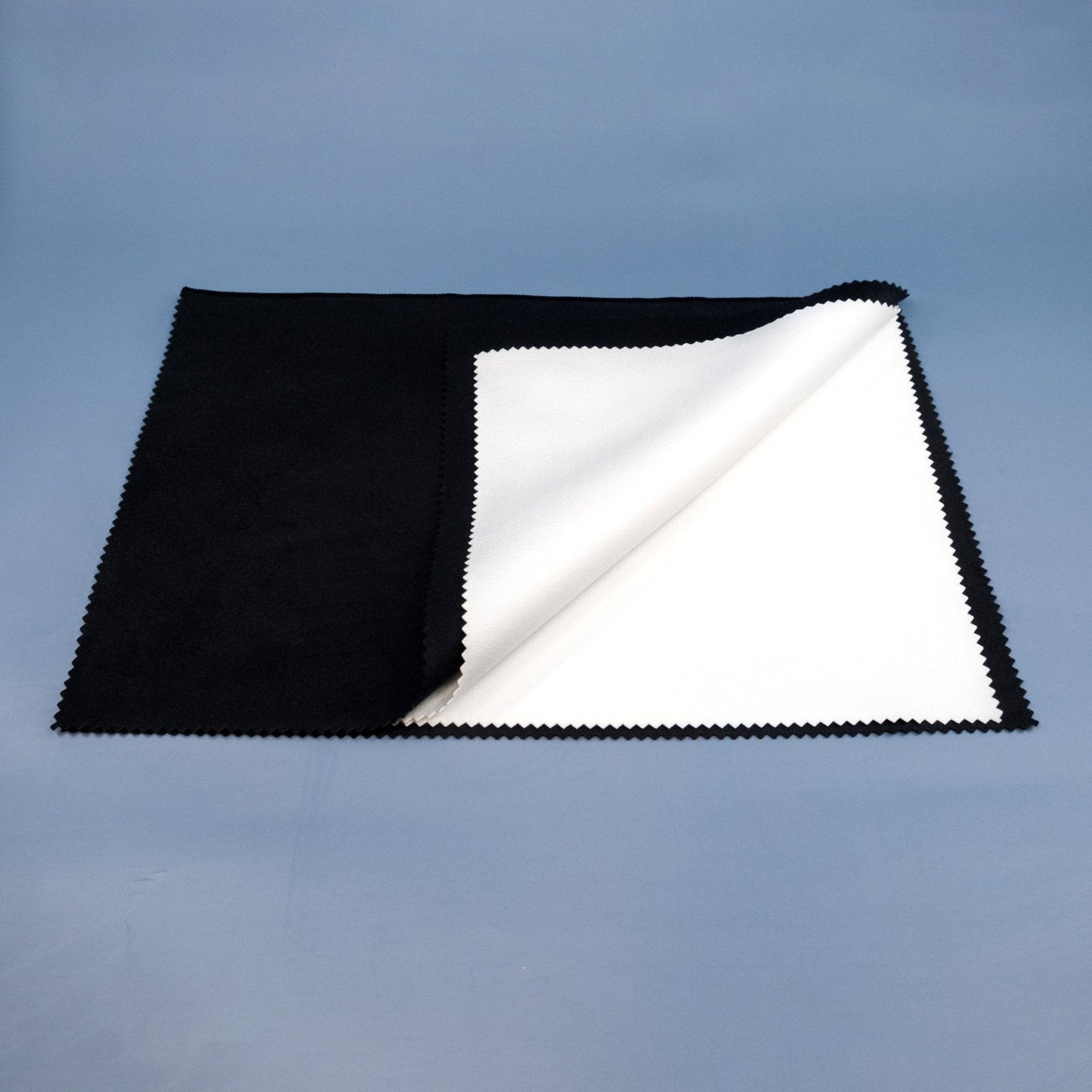Pre-treated Silver Polishing Cloth
Pre-treated Silver Polishing Cloth
Ok, so despite your best efforts, you have tarnish on your keys and bell and neck and ligature. Don't beat yourself up—tarnish happens because of your mouthpiece. And because you didn't use one of these in your case.
No problem! These cloths vanquish the tarnish with relish.
Katherine decided that we should offer fine jewelry-quality treated silver polishing cloths. Here's what she said to me:
- Make treated ones that have silver polish in the material so people don't have to use goopy silver polish.
- Make them dry so people don't have to use wet polishing wipes.
- Make them large so people can polish big things like bells and necks quickly...and so they last a long time.
- Make them less expensive than the alternatives out there.
So I did. These soft flannel cloths are large (12" x 8" — 20cm x 30cm), dry, and last for years. Oh, and they're inexpensive, too. (How? I have my ways.)
You can see from the video below how quickly it works on a silver ligature (one of the worst tarnish offenders, since it's married to your mouthpiece which emits sulfur dioxide—a tarnishing agent), but of course it works on ALL the silver parts of your instrument. Hell, you can even use it to polish your silverware. We do.
How is this different from the other polishing cloths you sell?
Those other cloths are intended for everyday use. They're untreated but preventative, so you won't need to use this cloth so often. And, you don't want to use this polishing cloth every day because even though it uses micro-abrasives, those are still abrasive, and over time if you polish your keys every day it will eventually harm the silver plating. If you use this cloth once a month, your silver will look great and last hundreds of years. How do I know? I have my great-great-grandmother's silverware, and it still looks as good as it did when she ate brisket with it in 1899. And we used cloths like this to keep it shiny.
How does it work?
The interior white section of the cloth is pretreated with chemicals. These are a mixture of tarnish inhibitors (mercapto esters and amine salt) and silver polishing agents. When you rub the tarnish cloth on tarnished silver, it transfers the tarnish to the cloth like magic.
How hard should I rub?
You can rub as hard (or lightly) as you like. It won't hurt the silver.
Does it still work after the white part turns black?
Yes. The chemicals are still in the cloth. But, after a while you may find that the cloth loses its effectiveness.
Can I wash it when it turns black?
No! If you launder your cloth, the chemicals will wash away. Time to get another one. But this should take a REALLY long time if you just use it on your instrument. Like years and years and years.
Can I use it on Nickel keys? Or Gold?
Nope. Different metal. Even if you're tempted, don't do it.
Can I use it on the body of my instrument?
While it won't hurt the body of your instrument, try to avoid rubbing the wood as much as practical.
I have other questions!
No problem. Contact Katherine and she'll answer 'em. She's the expert. I just make the stuff.
Couldn't load pickup availability
Showed to a mate at practice and he is ordering one. Awesome!
I was honestly amazed of just much it cleans… I was expecting some light polishing of a bit of body oils here and there, but it just cleans everything of and my silver plated ligature looks brand new again!
I hadn't used my clarinet in a while, and it accumulated a good amount of tarnish on the keys. I bought this cloth, and the tarnish came right off.
I wish I played the bass clarinet as well as this polishing cloth does its job.
As I was watching the Paris Olympics Opening ceremony, I polished my silver ligature and bass clarinet silver keys. The were so shiny, I almost needed sunglasses at night.




